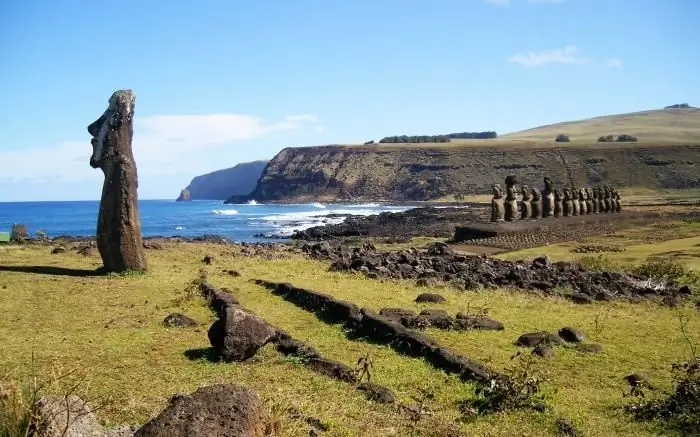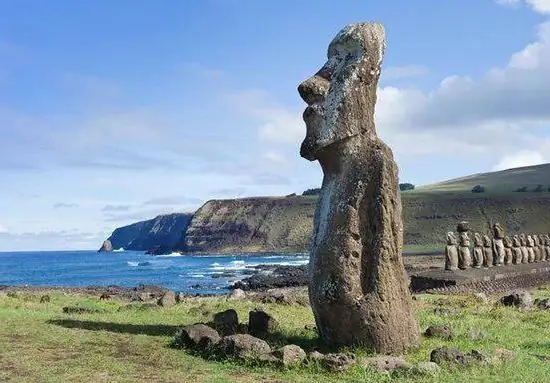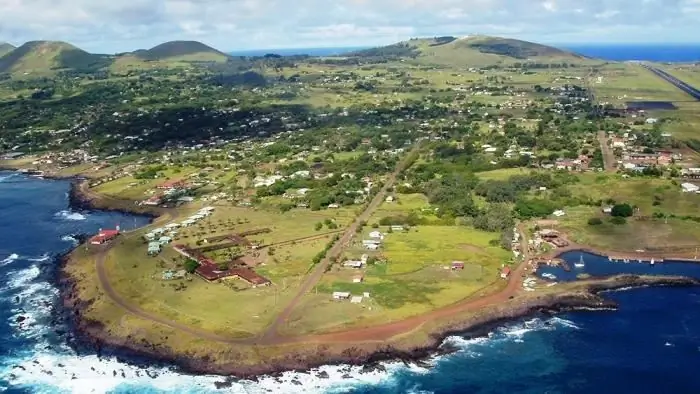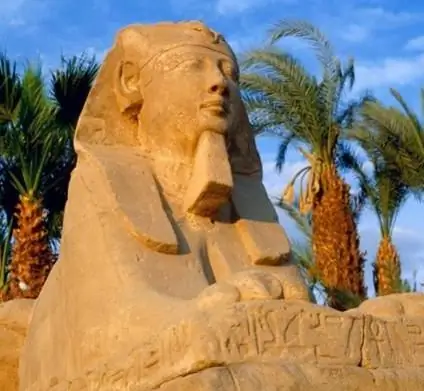- Author Harold Hamphrey hamphrey@travelwaiting.com.
- Public 2023-12-17 10:06.
- Last modified 2025-01-24 11:10.
One of the world's biggest mysteries are the idols of Easter Island, located in the South Pacific Ocean, at a distance of almost 4,000 kilometers west of the coast of Chile. This island, also called Rapa Nui, was discovered on Easter Sunday in 1722 by a Dutch captain. At that time it was almost uninhabited, but on its territory there were hundreds of giant statues, each weighing several tons. The traditional term for the names of these idols has become

the word "moai". The Easter Island statues have an eyeless face. The largest of them, Paro, weighs about 82 tons and is about 9.9 meters high.
So who built them and how did they get there? No one still knows the exact answer to these questions, but many are trying to find the answer. It was almost impossible for the inhabitants of the island to carve and put the moai upright without transport, only with their primitive tools.
One theory suggests that Easter Island was inhabited by Polynesian sailors who traveled in their canoes guided by the stars, rhythmsthe ocean, the color of the sky, and the shape of the clouds. They first arrived on the island in 400 BC. Perhaps there were two classes of inhabitants on the island - with short and long ears. The long-eared people were the rulers and forced the short-eared people to carve the moai. That is why the statues on Easter Island mostly have long ears. Then the short-eared people rebelled and killed all the long-eared people.
The Easter Island statues appear to have been carved from the top edge of a volcano wall on the island. They moved them with the help of ropes made from ancient hard grass. The rope was wrapped around the moai, and then a large group

men pulled one end forward.
Another smaller group acted as a counterweight and pulled the other end of the rope back.
Thus the statues of Easter Island moved towards the ocean. Moving one idol could take a month, as this process was very difficult.
Easter Island's population is believed to have reached 11,000. Due to the small size of the island, its resources were rapidly depleted.
When all of them were exhausted, people resorted to cannibalism - they began to eat each other. Work on the statues has ceased. When

the first Europeans arrived on the island, most of the inhabitants have already died out.
Another question is what functions the moai carried and why they were built. Archaeological and iconographic analysis shows that the statues of Easter Island were symbolspower, both religious and political.
Besides this, for the people who created them, they were actually repositories of the sacred spirit.
Regardless of what moai were designed for and why they were built, today their popularity is higher than ever.
Currently, the modern tourism industry is flourishing on the island, hundreds of travelers and lovers of the unknown come there to see with their own eyes the majestic idols gazing at the sea.






